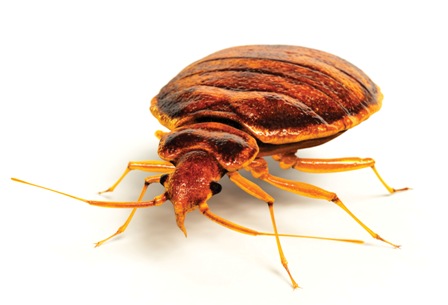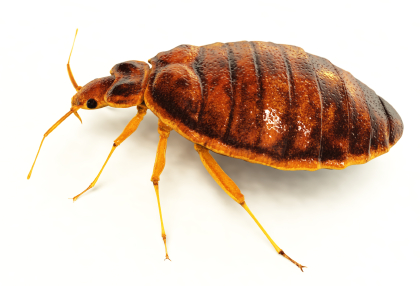The Bed Bug Re-Invasion; “the little vampires”
What are bed bugs?
Bed bugs (Cimex lectularius) are small, flat, parasitic insects that feed solely on the blood of people and animals while they sleep. Bed bugs are reddish-brown in color, wingless, range from 1mm to 7mm (roughly the size an apple seed), and can live up to a year without a blood meal.
Where are bed bugs found?
Bed bugs are found across the globe from North and South America, to Africa, Asia and Europe. Although the presence of bed bugs has traditionally been seen as a problem in developing countries, it has recently been spreading rapidly in parts of the United States, Canada, the United Kingdom, and other parts of Europe. Bed bugs have been found in five-star hotels and resorts and their presence is not determined by the cleanliness of the living conditions where they are found.
Bed bug infestations usually occur around or near the areas where people sleep. These areas include apartments, shelters, rooming houses, hotels, cruise ships, buses, trains, and dorm rooms. They hide during the day in places such as seams of mattresses, box springs, bed frames, headboards, dresser tables, inside cracks or crevices, behind wallpaper, or any other clutter or objects around a bed. Bed bugs have been shown to be able to travel over 100 feet in a night but tend to live within 8 feet of where people sleep.
Do bed bugs spread disease?
Bed bugs should not be considered as a medical or public health hazard. Bed bugs are not known to spread disease. Bed bugs can be an annoyance because their presence may cause itching and loss of sleep. Sometimes the itching can lead to excessive scratching that can sometimes increase the chance of a secondary skin infection.
What health risks do bed bugs pose?
A bed bug bite affects each person differently. Bite responses can range from an absence of any physical signs of the bite, to a small bite mark, to a serious allergic reaction. Bed bugs are not considered to be dangerous; however, an allergic reaction to several bites may need medical attention.
How do I know if I’ve been bitten by a bed bug?
It is hard to tell if you’ve been bitten by a bed bug unless you find bed bugs or signs of infestation. When bed bugs bite, they inject an anesthetic and an anticoagulant that prevents a person from realizing they are being bitten. Most people do not realize they have been bitten until bite marks appear anywhere from one to several days after the initial bite. The bite marks are similar to that of a mosquito or a flea -- a slightly swollen and red area that may itch and be irritating. The bite marks may be random or appear in a straight line.
Because bed bug bites affect everyone differently, some people may have no reaction and will not develop bite marks or any other visible signs of being bitten. Other people may be allergic to the bed bugs and can react adversely to the bites. These allergic symptoms can include enlarged bite marks, painful swellings at the bite site, and, on rare occasions, anaphylaxis.
How did I get bed bugs?
Bed bugs are experts at hiding. Their slim flat bodies allow them to fit into the smallest of spaces and stay there for long periods of time, even without a blood meal. Bed bugs are usually transported from place to place as people travel. The bed bugs travel in the seams and folds of luggage, overnight bags, folded clothes, bedding, furniture, and anywhere else where they can hide. Most people do not realize they are transporting stow-away bed bugs as they travel from location to location, infecting areas as they travel.
Who is at risk for getting bed bugs?
Everyone is at risk for getting bed bugs when visiting an infected area. However, anyone who travels frequently and shares living and sleeping quarters where other people have previously slept has a higher risk of being bitten and or spreading a bed bug infestation.
________________________________________
This information is not meant to be used for self-diagnosis or as a substitute for consultation with a health care provider. If you have any questions about the parasites described above or think that you may have a parasitic infection, consult a health care provider.
Reference; CDC
http://www.cdc.gov/parasites/bedbugs/faqs.html
Helpful LINKS:
http://intelligenttravel.nationalgeographic.com/2013/07/29/the-truth-about-bedbugs/
http://www.vdacs.virginia.gov/pesticides/pdffiles/bb-biology1.pdf
CDC.gov (www.cdc.gov) is your online source for credible health information and is the official Web site of the Centers for Disease Control and Prevention (CDC).
Picture courtesy of http://www.bedbugs.org/pictures/
Courtesy BedBugs.org
804-350-3609 EliteK9BBhunters@aol.com
Call, text or email. All efforts will be made for a quick response.
ELITE K9, LLC




